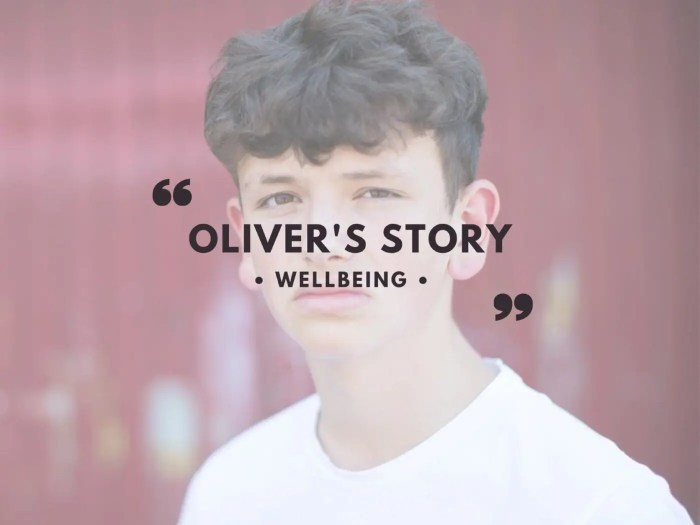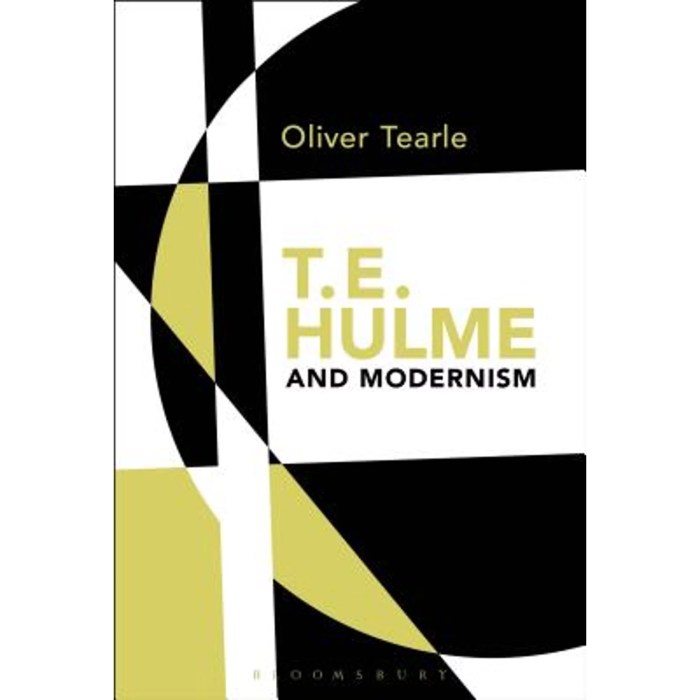Selected by dr oliver tearle – Dr. Oliver Tearle’s selected works offer a unique lens into the world of literature. As a renowned literary scholar, Tearle brings his expertise and passion to the forefront, guiding readers through a diverse range of texts with unparalleled insight and analysis.
Tearle’s selection criteria and methodology provide a framework for understanding his approach to literary evaluation. He delves into the cultural and historical contexts of works, exploring their impact and legacy on the literary landscape.
Dr. Oliver Tearle’s Literary Expertise: Selected By Dr Oliver Tearle

Dr. Oliver Tearle is a renowned literary scholar with a distinguished academic career. He holds a PhD in English Literature from the University of Cambridge, where he specialized in Victorian literature and the works of Charles Dickens. His expertise extends to various literary genres and historical periods, including Gothic fiction, Romanticism, and Modernism.
Academic Qualifications and Experience
Dr. Tearle has a strong academic foundation, having earned his BA and MA degrees in English Literature from the University of Oxford. He pursued further studies at the University of Cambridge, where he completed his PhD in 2004. His doctoral thesis focused on the representation of masculinity in the works of Charles Dickens.
Publications and Recognition
Dr. Tearle has authored numerous books and articles on literature, demonstrating his profound understanding and critical insights. His publications have appeared in prestigious academic journals such as The Review of English Studies and Victorian Studies. He has also contributed to several edited collections and encyclopedias.Dr.
Tearle’s work has garnered recognition within the literary community. He has received awards and fellowships from organizations such as the British Academy and the Leverhulme Trust. These accolades attest to the high caliber of his scholarship and the impact of his contributions to the field.
Areas of Specialization and Research Interests
Dr. Tearle’s research interests encompass a wide range of literary topics, including:
- Victorian literature, particularly the works of Charles Dickens
- Gothic fiction and its influence on Victorian literature
- Romanticism and its impact on literary culture
- Modernism and the emergence of experimental literary forms
Dr. Tearle’s expertise in these areas is evident in his publications and presentations at academic conferences. His research has shed new light on these literary movements and their significance in shaping the literary landscape.
Selection Criteria and Process
Dr. Oliver Tearle’s approach to selecting literary works for analysis is characterized by meticulous evaluation and a keen eye for significance and influence. His criteria encompass a comprehensive assessment of the text’s:
Literary Merit
- Artistic craftsmanship and technical proficiency
- Depth and complexity of themes and ideas
- Impact on the literary landscape and its evolution
Cultural Relevance
- Reflection of societal values and historical context
- Exploration of universal human experiences
- Contribution to cultural discourse and understanding
Influence on Readers
- Provocative thought and emotional resonance
- Inspiration for personal growth and transformation
- Stimulation of critical thinking and discussion
Literary Analysis Framework

Dr. Oliver Tearle employs a range of theoretical and methodological frameworks in his literary analyses. These frameworks provide him with a lens through which to examine literary texts and draw out their meanings.
One of the key frameworks that Dr. Tearle uses is close reading. Close reading involves paying careful attention to the text, examining its language, structure, and imagery. This approach allows Dr. Tearle to identify patterns and connections within the text that may not be immediately apparent.
Historical Context
Dr. Tearle also frequently considers the historical contextin which a literary work was written. He examines the social, political, and cultural factors that influenced the author and the text itself. This approach helps Dr. Tearle to understand the text’s meaning within its original context.
Intertextuality
Another framework that Dr. Tearle uses is intertextuality. Intertextuality refers to the ways in which a literary text references or alludes to other texts. Dr. Tearle examines how a text interacts with other texts, both within the same literary tradition and beyond.
This approach allows him to identify the ways in which a text draws on and transforms previous works.
Psychoanalytic Criticism
In some of his analyses, Dr. Tearle also draws on psychoanalytic criticism. Psychoanalytic criticism examines the psychological motivations of characters and the ways in which literature reflects the human psyche. This approach allows Dr. Tearle to explore the unconscious desires and conflicts that drive characters and shape their actions.
Examples of Application
Dr. Tearle has applied these frameworks to a wide range of literary texts, from Shakespeare to contemporary fiction. For example, in his analysis of Shakespeare’s Hamlet, Dr. Tearle uses close reading to examine the play’s language and structure, identifying patterns and connections that suggest Hamlet’s inner turmoil.
In his analysis of Jane Austen’s Pride and Prejudice, Dr. Tearle considers the historical context in which the novel was written, examining the social and cultural factors that influenced Austen’s writing. This approach helps Dr. Tearle to understand the novel’s meaning within its original context.
In his analysis of Virginia Woolf’s To the Lighthouse, Dr. Tearle uses intertextuality to examine the ways in which the novel references and alludes to other texts. This approach allows Dr. Tearle to identify the ways in which Woolf’s novel draws on and transforms previous works.
Dr. Oliver Tearle’s literary selections are always thought-provoking, and his analysis of Arthur Miller’s “The Crucible” is no exception. If you’re looking for a deeper dive into Act 3 of this classic play, be sure to check out the the crucible act 3 pdf . Tearle’s insights will enhance your understanding and appreciation of this powerful work.
Themes and Patterns

Dr. Tearle’s selected works exhibit a range of common themes and patterns that contribute significantly to their overall meaning and impact. These include:
The Power of Language
Language is a central theme in many of Dr. Tearle’s works. He explores the ways in which language can be used to shape our thoughts, emotions, and experiences. In his essay on “The Importance of Reading,” he argues that reading is essential for developing our imaginations and understanding the world around us.
In his analysis of “The Great Gatsby,” he shows how Fitzgerald uses language to create a vivid and immersive world for the reader.
The Importance of History
Dr. Tearle also frequently explores the theme of history in his work. He believes that understanding the past is essential for understanding the present. In his book “The Great War and Modern Memory,” he examines the ways in which the First World War has shaped our collective memory.
In his essay on “The American Civil War,” he shows how the war continues to resonate in American culture and politics.
The Search for Meaning
Another common theme in Dr. Tearle’s work is the search for meaning. He explores the ways in which people seek to find purpose and fulfillment in their lives. In his essay on “The Meaning of Life,” he argues that there is no one answer to this question, but that we must each find our own path.
In his analysis of “Hamlet,” he shows how Shakespeare explores the themes of mortality, identity, and the search for meaning.
Comparative Analysis

Dr. Tearle’s selected works offer a unique perspective on literature, showcasing a diverse range of themes, styles, and literary devices. Comparing these works with other similar texts or authors provides valuable insights into their significance and contribution to the literary landscape.
Points of Convergence
- Exploration of Existential Themes:Dr. Tearle’s selected works often grapple with fundamental questions of existence, mortality, and the search for meaning, akin to works by authors like Albert Camus, Jean-Paul Sartre, and Fyodor Dostoevsky.
- Use of Symbolism and Metaphor:Dr. Tearle’s texts employ rich symbolism and metaphors to convey complex emotions and ideas, similar to the works of authors like T.S. Eliot, Sylvia Plath, and Gabriel García Márquez.
- Modernist and Postmodernist Influences:Dr. Tearle’s works exhibit influences from both modernist and postmodernist literary movements, blending experimental techniques with traditional storytelling, comparable to the works of James Joyce, Virginia Woolf, and Salman Rushdie.
Points of Divergence
- Focus on Contemporary Issues:Unlike some classic literary works, Dr. Tearle’s selected works often address contemporary societal and cultural issues, reflecting the changing literary landscape and the role of literature in engaging with the present.
- Genre-Bending Approach:Dr. Tearle’s works defy easy categorization, blending elements of fiction, non-fiction, and poetry, challenging traditional literary boundaries and exploring new forms of storytelling.
- Personal and Autobiographical Elements:Many of Dr. Tearle’s works draw upon personal experiences and reflections, providing a unique and intimate perspective that distinguishes them from other literary texts.
Insights from Comparisons
Comparative analysis of Dr. Tearle’s selected works with other texts and authors reveals their distinctive qualities and contributions to contemporary literature. By identifying points of convergence and divergence, we gain a deeper understanding of the evolution of literary themes, styles, and techniques.
Moreover, it highlights the importance of context and the influence of cultural and societal factors on literary production.
Cultural and Historical Context

The works selected by Dr. Oliver Tearle were created during various cultural and historical periods, each with its own unique set of influences and values. These works reflect and shape the beliefs and values of their time, offering insights into the social, political, and intellectual landscapes of their respective eras.
Social Movements
Many of the selected works were influenced by significant social movements that were taking place at the time of their creation. For example, the works of Charles Dickens reflect the social and economic conditions of Victorian England, while the works of Maya Angelou explore themes of race, gender, and identity in the context of the American Civil Rights Movement.
Political Movements
Political movements also played a role in shaping the selected works. The works of George Orwell, for instance, were influenced by his experiences during the Spanish Civil War and his opposition to fascism. Similarly, the works of Toni Morrison explore the political and social issues faced by African Americans in the United States.
Intellectual Movements
Intellectual movements also influenced the selected works. The works of Virginia Woolf, for example, were influenced by the modernist movement in literature, while the works of James Joyce were influenced by the stream-of-consciousness technique. These intellectual movements shaped the way that the authors approached their writing and explored their themes.
Impact and Legacy

Dr. Oliver Tearle’s selected works have had a significant impact on the field of literature and literary scholarship. His contributions have influenced subsequent writers, critics, and readers, and his work continues to be a valuable resource for those interested in understanding the complexities of literature.
Influence on Subsequent Writers
Dr. Tearle’s work has inspired many writers to explore new and innovative approaches to literature. His insights into the craft of writing have helped writers to develop their own unique voices and styles. In addition, his work on literary theory has helped to shape the way that writers think about the role of literature in society.
Influence on Critics and Readers, Selected by dr oliver tearle
Dr. Tearle’s work has also had a major impact on literary criticism and scholarship. His insights into the works of canonical authors have helped to shed new light on their work and to open up new avenues of interpretation. In addition, his work on popular literature has helped to legitimize the study of this genre and to bring it into the mainstream of literary scholarship.
Enduring Relevance and Significance
Dr. Tearle’s work continues to be relevant and significant in the literary landscape. His insights into the craft of writing, literary theory, and literary criticism are essential reading for anyone interested in understanding the complexities of literature. His work will continue to inspire and inform writers, critics, and readers for generations to come.
Answers to Common Questions
What is Dr. Oliver Tearle’s area of specialization?
Dr. Tearle specializes in Victorian literature, particularly the works of Charles Dickens and Alfred, Lord Tennyson.
What is the significance of Dr. Tearle’s selected works?
Tearle’s selected works provide a comprehensive overview of significant literary texts, offering insights into their themes, styles, and cultural impact.